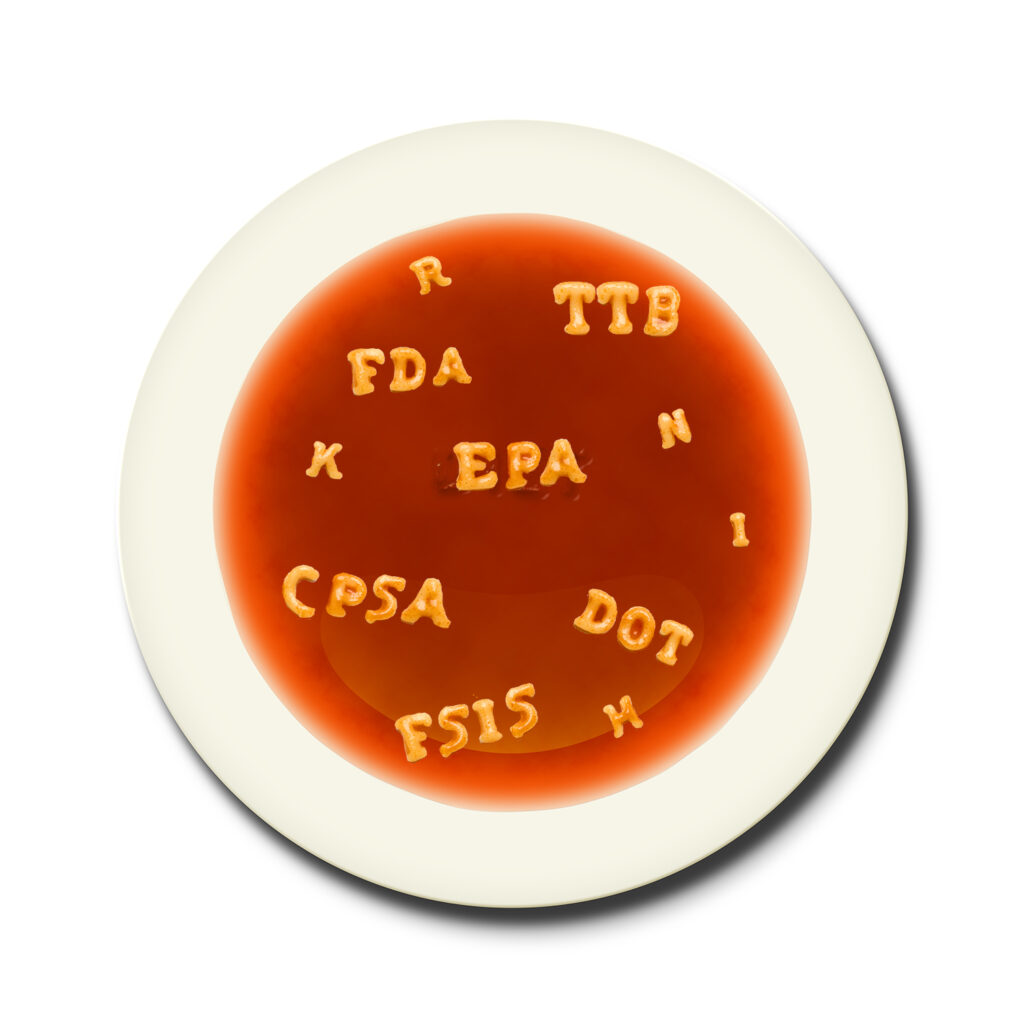Is Your Product Subject to Participating Government Agencies?

Unfortunately, figuring out if your specific product is regulated by one of these agencies can feel like hunting for letters in a bowl of alphabet soup.
To get started, here are few government agencies you should know about before importing:
- Food Safety and Inspection Service (FSIS): Do you import meat, poultry, or processed egg product? This agency assures these products are safe, wholesome, unaltered and properly labeled and packaged.
- Food and Drug Administration (FDA): What about foods, cosmetics, medical devices, drugs, tobacco or dietary supplements? Some examples are cheese, wine, beverages, cups, plates, shampoo, makeup brushes and sponges, and nebulizers. If so, then this is your PGA!
- Lacey Act: If you import articles made of wood, then you need to comply with the Lacey Act. This agency combats trafficking in “illegal” wildlife, fish, and plants. Some examples of commodities included under the Lacey Act Declaration are hardwood floors, hand tools, walking sticks and plywood.
- Department of Transportation (DOT): Did you know that children’s car seats are regulated by the DOT? This agency also regulates golf carts, tires, cars, trucks, and seat belts.
- Environmental Protection Agency (EPA): Toxic substances, chemical products, pesticides, nail polish, glow in the dark sticks and pens are some examples of products regulated by this agency.
- Fish & Wildlife Service (FWS): Any products made of reptilian leathers, wildlife teeth or claws (i.e. shark, big cat, bear), and bird feathers are subject to this agency.
- Alcohol and Tobacco Tax and Trade Bureau (TTB): If your import wish list includes tobacco, wines and spirits, firearms, and ammunition, then you are subject to TTB rules.
- Consumer Product Safety Commission (CPSC): This agency works closely with U.S. Customs and Border Protection (CBP) to identify and examine imported shipments of consumer products. Your product could be on their target list, which includes children’s products containing excessive levels of lead, children’s sleepwear, toys and other articles with small and general use products such as mattresses, art materials, fireworks and lighters.
Don’t assume your product is exempt from oversight by any Partner Government Agency. Understanding your legal obligations as an importer is essential for successful and compliant import processing and avoiding delays that may be costly to your organization.
For more information, please contact us at [email protected]
